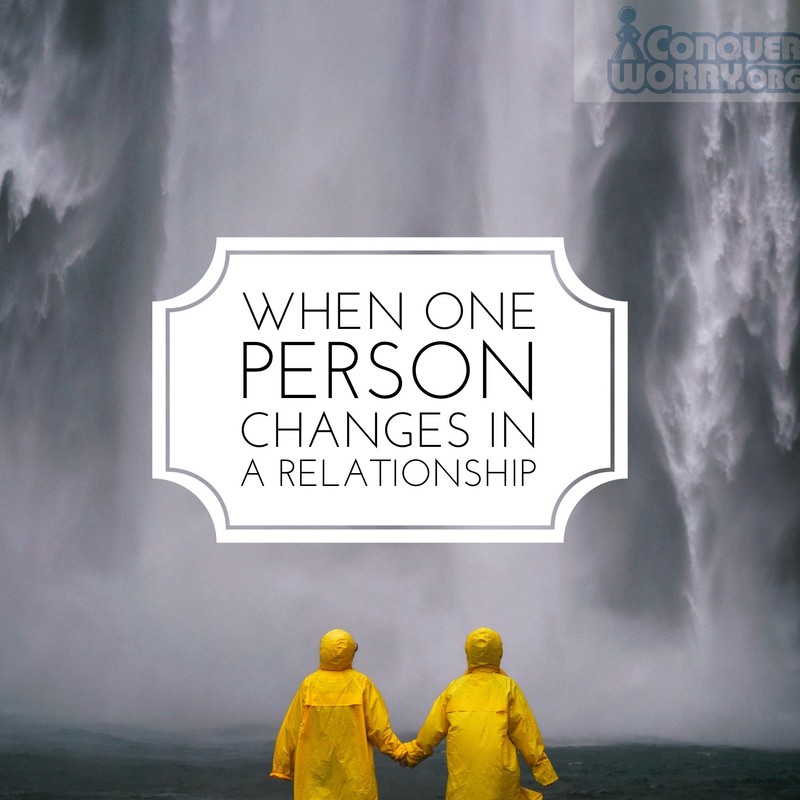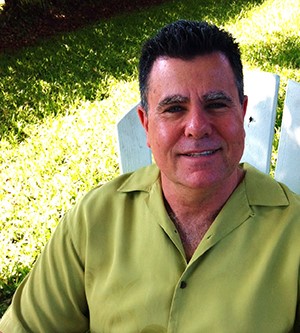|
Article by Irving Schattner Post design and edit by Christy Zigweid Photo by Pexels via Pixabay made using @WordSwagApp When a person in a relationship recovers from addictions (alcohol or drugs, food, gambling, shopping), anxiety and/or depression, it could be said that the person is following a new path. This path may feel scary at times, but when such a person has committed to the change process, their partner or significant other may not fully be aware of how their loved one has changed and how it may impact their relationship. In some instances, one's partner or significant other may welcome these changes as a healthy outcome of couples therapy. They may feel liberated from their partner’s constant need for support, validation and neediness, and can now focus on establishing a more balanced, healthy, and mutually beneficial relationship. In other instances, one’s partner or significant other may find himself or herself resentful and pushing back against the tide of what they see as a person they no longer know or understand. This occurs most particularly when their role as protector, defender, or enabler becomes undermined by this change in their partner. As one partner changes through the therapeutic process, the balance of power can shift one of two ways: Equality, equilibrium, mutual recognition, understanding, and respect come to define this modified relationship. And one partner accommodates to this new arrangement while the other partner finds it difficult or is unwilling to make a change that recognizes the needs of the other. Maintaining a Healthy RelationshipGenerally speaking, it is healthy and necessary for people to adapt to changing circumstances and life events. So, too, it is expected that relationships will change over time. But sometimes partner’s needs change and are not complimentary. Partners may find themselves on different paths or life journeys. So, what can you do when you find that your needs, wants, desires, dreams, or life direction have changed from that of your partner’s? The first thing you might want to consider is acknowledging these changes. Failure to be open and honest with your partner may only lead to a breakdown of the relationship. Perhaps you truly want out of the relationship and are fearful of confronting this fact. If this is the case, your complacency and lack of openness will passively move you towards what you truly want – dissolution of your relationship. On the other hand, if you want your partner to share the new you and your new journey, it is paramount that you share your thoughts and feelings with your partner. To do otherwise, is sabotage of your relationship. It is natural to want to grow and change, and if you want your relationship to survive, even thrive, it is mandatory that you engage your partner in healthy dialogue that lets them know what’s going on inside of you, the personal changes you are making, and how that may impact or shift the dynamics or nature of your relationship. In turn, you should allow your spouse the space, time, and freedom to fully express their thoughts, feelings and needs relevant to the changes taking place. It is worth noting that just because you may not be one-hundred-percent on the same page, does not mean your relationship is doomed. If you feel like you are at an impasse, or simply don’t know where to begin this process of reconciliation, couples therapy can be of great help in defining your respective wants, needs and desires, and examining whether they can be accommodated in your relationship or if it’s time to move on. About the Author - Irving Schattner, LCSWAbout the Author - Irving Schattner, LCSWAbout the Author - Irving Schattner, LCSW
44 Comments
6/15/2023 10:06:30 am
Equality, equilibrium, mutual recognition, understanding, and respect come to define this modified relationship<a href="https://coursependent.com/">.</a>
Reply
8/8/2023 02:38:56 am
This adjusted connection is defined by equality, equilibrium, mutual acknowledgment, understanding, and respect[[email protected]].[/url]
Reply
8/8/2023 02:41:33 am
This adjusted connection is defined by equality, equilibrium, mutual acknowledgment, understanding, and respect[[email protected]].[/url]
Reply
11/27/2023 01:54:30 am
The qualities of equality, balance, mutual acknowledgment, comprehension, <a href="https://https://petdietadvisor.com/ /">.</a>and respect characterise this adjusted connection. 8/11/2023 03:46:10 am
This adjusted connection is defined by equality, equilibrium, mutual acknowledgment, understanding, and respect[[email protected]].[/url]
Reply
6/26/2023 12:23:38 pm
It is through these experiences that I’ve developed a strong appreciation of the uniqueness of each person’s life story
Reply
8/25/2023 01:51:14 am
After downloading Office Arrangement, follow the directions that appear on the screen.Once the establishing interaction is complete, start the applications. Do you need to improve your fundamental effectiveness right away? You don't have much time left to wait right now. Microsoft Office has put in place a strategy to boost output right now[url=https://uniquetoursjamaica.com/].[/url]
Reply
8/15/2023 06:52:51 pm
We can begin to think more clearly[url=https://summerplacebylifestyle.com/].[/url]
Reply
8/15/2023 06:57:18 pm
We can begin to think more clearly[url=https://summerplacebylifestyle.com/].[/url]
Reply
8/20/2023 11:44:08 am
we're able to start thinking more clearly[url=https://ladiesnightdubai.com/].[/url]
Reply
8/20/2023 04:40:47 pm
Our ability to think clearly has improved[url=https://lifestyleluxuryvacationclub.com/].[/url]
Reply
8/20/2023 06:45:08 pm
I enjoyed reading this; many thanks[url=https://lifestyleceramics.com/].[/url]
Reply
10/3/2023 07:12:04 am
We can be more honest with ourselves. With the people we care about, we can be transparent[url=https://www.rocklandtrading.com/].[/url]
Reply
8/21/2023 07:25:37 am
We have the capacity to be more truthful with ourselves[url=https://brutesuits.com/].[/url]With the people we care about, we can be open and honest.
Reply
8/29/2023 06:54:15 am
We can begin to think more clearly[url=https://brutesuits.com/].[/url]
Reply
9/5/2023 06:05:35 am
These interactions have helped me to gain a profound knowledge of how very particular each person's life story is[url=https://www.acvdrink.com/].[/url]
Reply
9/6/2023 07:30:38 am
Recognizing these changes might be the first thing you want to think about doing[url=apple cider vinegar for digestive issues].[/url]
Reply
9/8/2023 02:38:45 am
https://www.acvdrink.com/how-to-drink-apple-cider-vinegar-in-the-morning
Reply
Essentially, I want something that will crease over my arrangement of battered earpads before they deteriorate, ideally made of a material that won't shred effectively or be excessively undesirable https://www.acvdrink.com/how-to-drink-apple-cider-vinegar-in-the-morning
Reply
9/13/2023 03:01:36 am
We are capable of being more honest with ourselves[url=https://senmarketplace.sn/product-category/appliances-kitchen/].[/url]
Reply
9/14/2023 05:51:57 am
In essence, I'm looking for something to crease over my arrangement of battered[url=https://www.acvdrink.com/apple-cider-vinegar-for-digestive-health-fact-or-fiction].[/url]
Reply
Ahion
9/20/2023 01:21:06 am
Find our vision for CEIP Sant Lluís el Cós families. Disclosing desires and objectives to encourage a flourishing instructive local area. Go along with us today<a href="https://resourcefactors.com/">.</a>
Reply
9/20/2023 01:36:43 pm
After downloading Office Arrangement, adhere to the on-screen instructions.Start the programs after the establishing interaction is finished. Do you need to immediately increase your essential effectiveness? There isn't much more time for you to wait right now.
Reply
Because of the wellbeing circumstance at that point, which suggested giving extra common dissemination space, the approach was acknowledged.
Reply
Zdravo da prasam dali e vozmozno da se transformira 100m2 vo 125m2 I sto treba da napravam za da await odobreno.Znaci na postoecka kuka noviot plan nova markica e 100m2 a jas sakam da go prosiram na 125m2 in addition to sakam od[url=https://lovewithdonut.com.au/about-us/].[/url]
Reply
10/9/2023 01:57:07 am
When one person changes in a relationship, it becomes a catalyst for growth and adaptation. Embracing these changes with open communication and understanding can strengthen the bond, fostering a relationship that evolves harmoniously with the individuals involved<a href="https://resourcefactors.com/">.</a>
Reply
4/5/2024 12:49:28 pm
A personal experience that stands as a testament to this involved a couple who, after several years together, realized their career aspirations were pulling them in opposite directions. Instead of viewing this divergence as a deal-breaker, they saw it as an opportunity to grow both individually and as a couple. They scheduled regular 'dream sessions' where they discussed their aspirations, fears, and how they could support each other. This open dialogue brought them closer, allowing them to navigate their evolving paths without drifting apart. It's a powerful reminder that change isn't necessarily the end of harmony but can be the beginning of a deeper, more understanding connection. So, if you find yourself or your partner changing, remember: it's not about losing what you had; it's about embracing what you could become together.
Reply
Leave a Reply. |
Build Your Action Based Stress Reduction System
Popular PodcastsOlympian Suzy Favor Hamilton - From Fame to Prostitution to Advocacy
Hall of Fame Basketball Star Chamique Holdsclaw on Mental Resilience Diana Nightingale on her husband Earl Nightingale's Principles for Mental Health Success JoAnn Buttaro on Date Rape & PTSD Survival Story: Its Never Too Late Gabe Howard on BiPolar Advocacy Phil Fulmer on Teen Suicide Prison, Bipolar and Mania with Andy Behrman Columbia Univeristy's Dr. Rynn on OCD Archives
March 2018
Categories
All
|





 RSS Feed
RSS Feed





